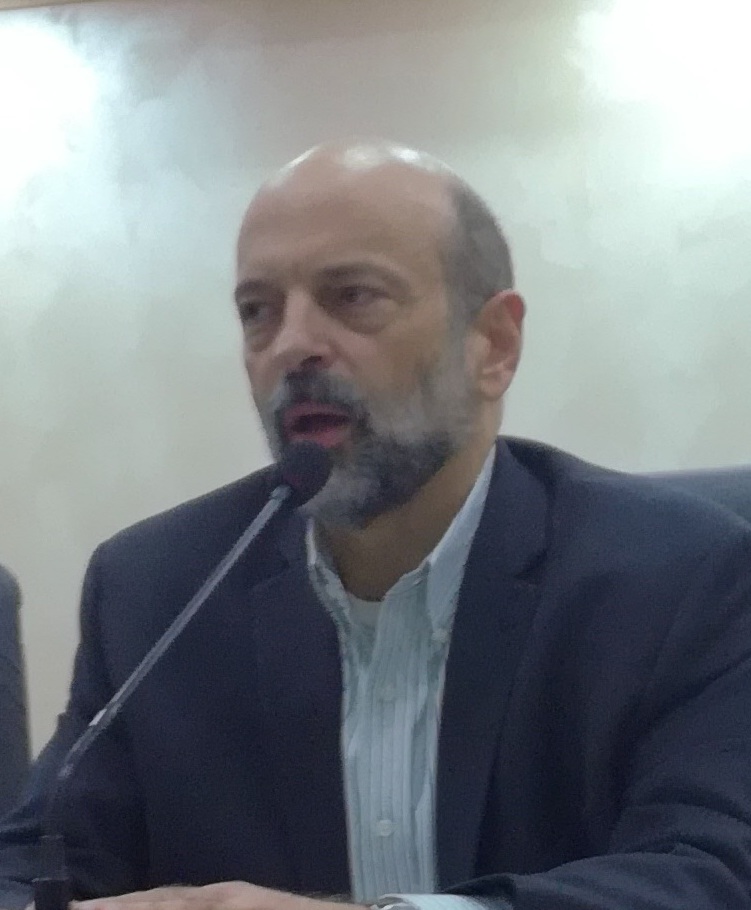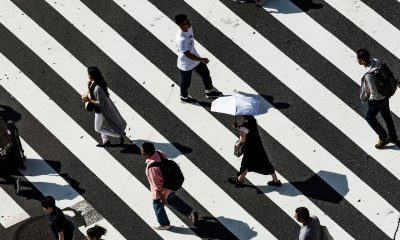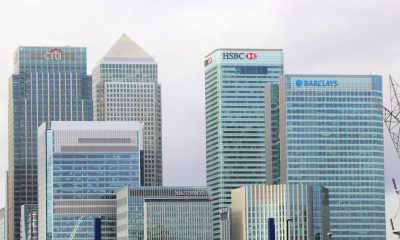News
Jordan PM caught between angry public, international lenders

Razzaz, a former senior World Bank official, faces a tough task: He must defuse public anger at economic policies seen by many as unfair, while introducing reforms that can reduce Jordan’s debt-to-GDP ratio to a level acceptable to international lenders. (Photo By Mohammad hajeer – Own work, CC BY-SA 4.0)
AMMAN, Jordan -Jordan’s new prime minister won’t have much time to deliver on promises to rescind a proposed tax increase and implement economic reforms with more consideration for the country’s struggling poor and middle class.
Union leaders who toppled the previous prime minister last week through widespread protests say they will go back to the streets if his successor, Omar Razzaz, does not deliver.
Razzaz, a former senior World Bank official, faces a tough task: He must defuse public anger at economic policies seen by many as unfair, while introducing reforms that can reduce Jordan’s debt-to-GDP ratio to a level acceptable to international lenders.
He has promised a more inclusive path, but has also tried to lower expectations in recent days in meetings with representatives of unions, political parties and legislators.
“There is no magic stick. There is no painkiller. This is a long path, a difficult path,” he said earlier this week. “But God willing, the target is clear and the leadership is united with the people in achieving it.”
In any reform efforts, Jordan can count on some good will from allies such as the United States, the European Union and Gulf states. Considered as “too strategic to fail,” Jordan has received generous economic and military aid to ensure its relative stability in a turbulent region.
Earlier this year, the U.S. pledged a total of nearly $6.4 billion for Jordan through 2022. Several days ago, three Gulf states promised $2.5 billion in aid over five years. On Wednesday, Qatar’s foreign minister pledged $500 million in infrastructure investments in Jordan and said his country would offer 10,000 jobs to Jordanians.
On the other side of the balance sheet, the fallout from conflicts triggered by the 2011 Arab Spring uprisings has led to a potentially destabilizing economic downturn in Jordan.
The violence disrupted trade with Iraq and Syria, as well as the flow of cheap natural gas from Egypt. At the same time, the influx of hundreds of thousands of Syrian refugees burdened water- and energy-poor Jordan and its weak infrastructure.
Jordan’s debt-to-GDP ratio now stands at about 96 per cent, while unemployment hit 18.4 per cent, the highest in 25 years, according to the Department of Statistics.
In 2016, the International Monetary Fund agreed to pay $723 million to Jordan over six years, linking disbursement to subsidy cuts, tax increases and other fiscal reforms. Adherence to such prescriptions was to reduce Jordan’s debt-to-GDP ratio to 77 per cent in 2021.
Instead, Jordan’s rollout of the reforms has brought its citizens to the streets.
Jordanians have protested regularly in recent months, as prices of bread and electricity shot up. Demonstrations intensified when the government announced its planned tax increases.
Starting earlier this month, thousands of Jordanians demonstrated outside the prime minister’s office every evening, chanting “maanash,” (“We don’t have.”) A federation of 17 unions, including pharmacists, doctors, engineers, and shop owners, staged two one-day warning strikes during this period.
“We arrived at a point where we have nothing left,” said Khaled Hilmi, a pharmacist in Wehdat, a Palestinian refugee camp in the Jordanian capital of Amman.
Hilmi said his household costs have skyrocketed. He would not discuss his finances in detail, but said a large chunk of his earnings goes back to the government in taxes and fees.
The government does not provide decent services in return, he said, adding that he must send his four children, including an autistic 9-year-old son, to expensive private schools to ensure they have a shot at a decent future.
“They’re asking me to give so much to the state,” he said. “But at the same time they give high incomes to parliament members and Mercedes cars to their ministers. The citizens are paying the bills for the government and the state doesn’t provide me anything.”
Razzaz has promised to scrap the new tax bill, which would have lowered the bar for taxable individual income from 12,000 dinars ($17,000) to 8,000 dinars ($11,300) a year and increase taxes on key sectors like agriculture, which employs many of Jordan’s poorest citizens.
Many Jordanians see the appointment of Razzaz, seen as a leading reformer, as a victory. Others note that King Abdullah II, who has final say on all policy, has reshuffled governments in the past to quell public discontent, without green-lighting fundamental reforms.
“What we are dealing with is purely a political recipe rather than an economic recipe,” said analyst Amer al-Sabaileh.
The appointment of a new prime minister might offer citizens some hope, he said. “But when it comes to numbers and economic facts, I’m a bit pessimist that there’s nothing changing, at least in the short term,” he added.
Jawad Anani, the head of the Amman Stock Exchange, said the way forward is to stimulate growth, arguing that Jordan’s economy has reached a point where further taxation actually decreases government revenues.
“It would just be lunatic to continue to apply the same recipe with the same ingredients and same utensils, in hopes of getting a different dish,” said Anani, a former Cabinet minister.
He hopes the IMF will allow Jordan to delay the tax plan for two to three years, enabling the government to spend on development and investment instead, until citizens are in a position to pay higher taxes.
The IMF has signalled potential flexibility.
On its website, it said it welcomes King Abdullah’s call for a national dialogue on the economy as a “very positive step forward” and that it looks forward to conducting a second review of Jordan’s reform program with the new government.
Ali al-Abous, president of the Professional Associations Council that led the protests, said any reform program should address what he believes is widespread official mismanagement.
“The debt wouldn’t exist if not for corruption,” he said, expressing a widely held view in Jordan. “If they manage to bring half of the stolen money to the treasury, we will not suffer the way we are suffering now.”
The union leader said ordinary Jordanians should be given a voice in the new reform program.
Hilmi, the pharmacist, said the government and its new promises are well-intentioned.
“But we are on standby,” he said. “If they don’t fulfil their promises, we will return.”





















